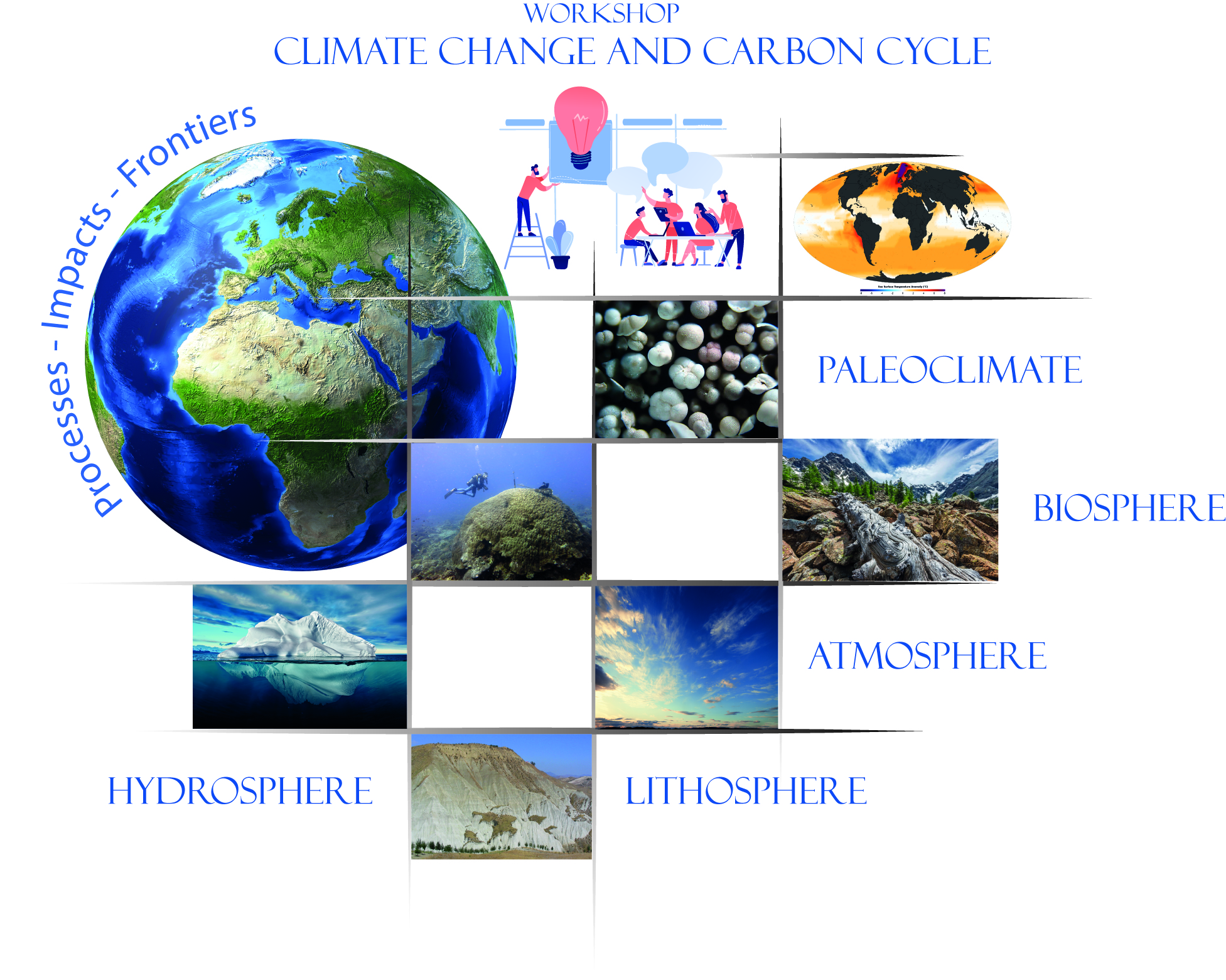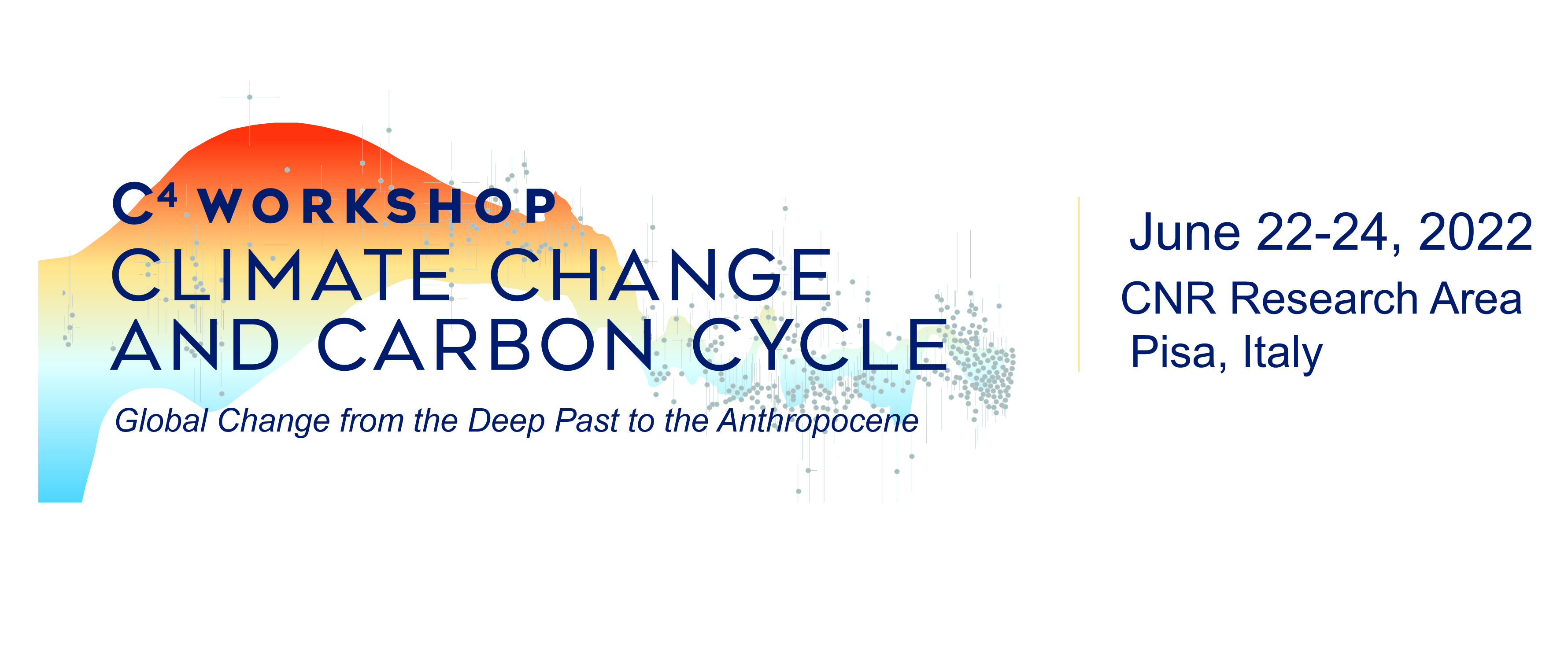- Home
- Publications
- PAGES Magazine
- Gathering An Interdisciplinary Community To Explore Carbon-cycle Complexities Over The History of The Earth
Gathering an interdisciplinary community to explore carbon-cycle complexities over the history of the Earth
Cornacchia I, Boschi C, Braico P, Cristofanelli P, Iadanza A, Montagna P, Regattieri E & Tesi T
Past Global Changes Magazine
30(2)
129
2022
Irene Cornacchia, C. Boschi, P. Braico, P. Cristofanelli, A. Iadanza, P. Montagna, E. Regattieri and T. Tesi
Pisa, Italy, 22-24 June 2022
Climate change and the global carbon cycle have been influencing each other for millions of years. Yet, understanding and predicting the interactions between Earth's climate and carbon dynamics is challenging due to poorly constrained feedbacks and processes. Today, anthropogenic carbon dioxide emissions into the atmosphere–ocean system are altering the climate at unprecedented rates, making the understanding of carbon and climate dynamics one of the most crucial challenges for our society. To face this fundamental challenge, a new interdisciplinary approach is needed to embrace different geological, biological, and anthropic components with the overarching goal to produce a novel, global scientific view of the Earth system across timescales.
With this goal in mind, the working groups "Paleoclimate Dynamics" and "Carbon Cycle" of the Italian National Research Council (CNR) organized an international workshop "Climate Change and Carbon Cycle: Global change from the deep past to the Anthropocene". Over 70 people (most of them early-career scientists) from 10 countries attended. The workshop consisted of three sessions: Processes, Impacts, and Frontiers. The first session aimed to provide a better understanding on how fast and slow feedbacks in the carbon cycle operate to modulate the evolution of climate and its sensitivity to forcing through time, exploring triggers and tipping points. In this framework, the keynote speaker Prof. Marie Edmonds (Department of Earth Sciences, University of Cambridge, UK) presented the slow geological processes, mostly related to volcanism, that have exerted first-order control on the atmosphere and oceans over geologic timescales.
 |
|
Figure 1: Sketch showing the different sources of information for studying the global carbon cycle and its relationship with climate across different timescales; keywords are also listed. |
The second session tackled the effects of climate changes and carbon-cycle perturbations on the different components of the Earth system over different time intervals, and with a multidisciplinary approach. In this session, the keynote speaker Dr. Richard Sanders (ICOS Ocean Thematic Centre, Norwegian Research Centre, Norway) discussed the consequences of the increasing CO2 concentration in the oceans, highlighting the importance of biogenic carbon, partly overlooked, when estimating the oceanic carbon budget and its rapid changes due to anthropogenic activities. Lastly, the third session focused on the analytical and conceptual boundaries in carbon-cycle–climate system research, to identify common/trans-scale knowledge gaps, and to stimulate discussion on how a combined effort is beneficial for both communities focusing on paleo and modern processes, to overcome current research limitations. The session was closed by keynote speaker Prof. Bärbel Hönisch (Department of Earth and Environmental Sciences, Columbia University, USA); her talk highlighted the importance of CO2 reconstructions over the past 60 million years to tackle the complex relations between this greenhouse gas and global temperature trends in the deep past.
During the workshop, participants traveled through space and time, from the Triassic–Jurassic mass extinction (~201 Myr BP) to the consequences of the 2020 lockdown on the riverine carbon cycle in Tuscan watersheds. Contributions covered research topics at different latitudes, from the Arctic to the Antarctic, and different climates, from the Alpine Critical Zone to the Mediterranean Sea, as well as urban environments. In addition, participants had the chance to visit five different laboratories with the goal of familiarizing themselves with new concepts and methodologies outside their scientific background. The research topics of these laboratories included forest modeling, IODP drilling initiatives, soil geochemistry, terrestrial ecosystem monitoring, marine carbon cycle, and carbonate rocks.
The overall inclusive approach of this workshop succeeded in gathering scientists working on topics of common interest despite the different research tools and timescales of interest. Collectively, the 2022 meeting in Pisa emphasized the need to forge a novel scientific community—multidisciplinary and transdisciplinary—well interconnected and open to new synergies among disciplines.
affiliation
Italian National Research Council (CNR), Rome, Italy
contact
Eleonora Regattieri: eleonora.regattieri igg.cnr.it
igg.cnr.it
